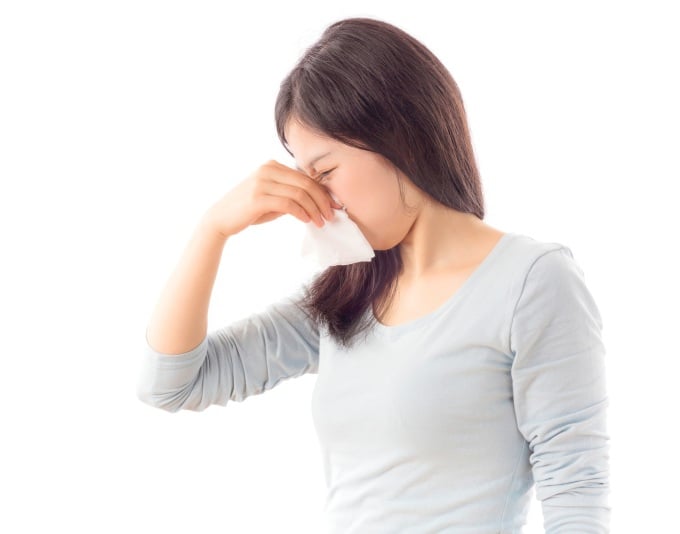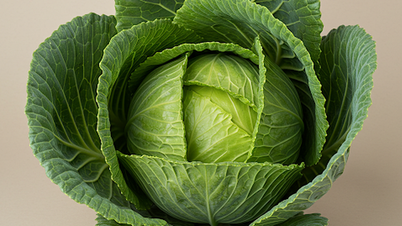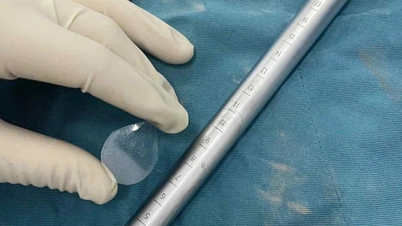Dust, mold, dry air, dehydration can cause dry nose, need to drink enough water, limit exposure to allergens, use nasal spray.
Dry nose is a condition in which the lining of the nose is not moist enough, causing discomfort and sometimes leading to nosebleeds. There are many different causes of dry nose and are often related to health or living environment.
Seasonal allergies
Seasonal allergies occur during the transitional periods between spring, summer and fall or are caused by a number of agents such as pollen, dust, mold, animal hair entering the human respiratory tract. When sick, the sinuses are irritated, causing nasal tissue to dry and become inflamed.
Patients should stop contact with allergens, regularly clean the house, clean the body after going out, drink plenty of water and supplement with vitamin C to improve resistance. Avoid outdoor activities in the early morning because this is the time of day when pollen counts are highest.
Some medications that can be used for allergic rhinitis are decongestants, nasal sprays, and antihistamines.
Dry air
Air that is too dry or low in humidity dries out the mucous membranes in your nasal passages, which can lead to irritation, cracking, and bleeding. Drinking enough water is a simple way to stay hydrated. The average adult should drink two liters of water a day. Steaming your nose with warm water can help relieve nasal congestion and reduce pain.
Dehydration
Not drinking enough water and fluids causes dehydration, which leads to dry mouth and nasal mucosa. According to Johns Hopkins Medicine , signs of dehydration include feeling thirsty, headaches, dry skin, urinating less often, darker urine, fatigue, and dizziness.
People with mild dehydration can drink water and/or take electrolyte supplements to relieve symptoms. However, severe dehydration requires medical attention.

Dry nose causes irritation and discomfort to the nasal mucosa. Photo: Freepik
Sjogren's syndrome
Sjogren's syndrome is an autoimmune condition that prevents the body from producing enough moisture. People with this syndrome often have symptoms of dry mouth, dry eyes, dry skin, dry nose, nosebleeds, joint pain, vaginal dryness, fatigue, dermatitis, and chronic inflammation.
To diagnose, the doctor evaluates the patient's symptoms, measures saliva flow, and tests the blood for antibodies. Currently, there is no cure for Sjogren's syndrome. A combination of lifestyle changes and medication can control symptoms.
Atrophic rhinitis
Atrophic rhinitis is a dry nose that occurs when the tissues inside the nose are thin or atrophied. The lining of the nose may smell bad and the airways may become blocked. Causes of atrophic rhinitis include allergies, infections, estrogen imbalance, vitamin A and D deficiency, or people who have undergone sinus surgery.
Currently, there is no cure for this disease. Treatments that can reduce symptoms include applying antibiotic ointments in the nose, moisturizing ointments in the nose, vitamin supplements, and using a humidifier.
Respiratory disease
Dry nose can also be a symptom of many respiratory diseases such as pharyngitis, sinusitis, trauma, nasal congestion. Sometimes, this condition is also accompanied by signs such as nasal congestion, difficulty breathing, mouth breathing, dry mouth.
Side effects of the drug
Allergy medications can cause dry sinuses. Because the ingredients in antihistamines and nasal sprays can dry out excess mucus in the nose, causing dry sinuses. People who are taking these medications and experience dry nasal passages should consult their doctor.
Huyen My (According to Healthline, Medical News Today )
| Readers ask questions about ear, nose and throat diseases here for doctors to answer |
Source link


![[Photo] Hanoi morning of October 1: Prolonged flooding, people wade to work](https://vphoto.vietnam.vn/thumb/1200x675/vietnam/resource/IMAGE/2025/10/1/189be28938e3493fa26b2938efa2059e)



![[Photo] President of the Cuban National Assembly visits President Ho Chi Minh's Mausoleum](https://vphoto.vietnam.vn/thumb/1200x675/vietnam/resource/IMAGE/2025/10/1/39f1142310fc4dae9e3de4fcc9ac2ed0)

























































































Comment (0)